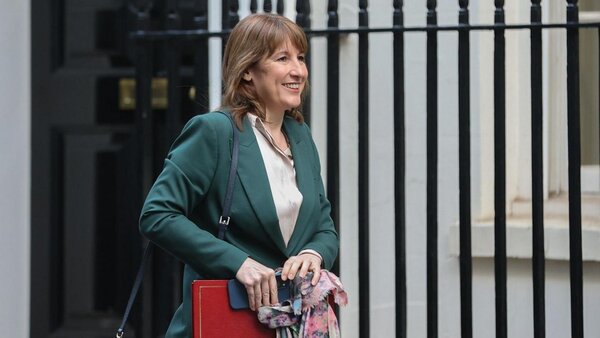Introduction
Chancellor Rachel Reeves has announced a significant package of tax increases as part of the latest Budget, introducing measures that will impact millions of households across the United Kingdom.
The changes, comprising a £13 billion rise targeting income, property, and investment earnings, come alongside the freezing of income tax and National Insurance thresholds for an additional three years. According to data from the Institute for Fiscal Studies (IFS), this has resulted in the heaviest tax burden in modern UK history.
While Reeves insists that these decisions are necessary to meet welfare commitments and maintain fiscal discipline, the announcement has prompted sharp criticism from opposition parties and some members within the Labour Party.
Questions are mounting regarding the government’s adherence to its previous election pledges that promised not to raise taxes on working people.
Tax Thresholds Frozen Beyond 2028
The Budget confirms that income tax and National Insurance thresholds will remain unchanged until the 2030–31 fiscal year.
This extension of the freeze means that as wages rise with inflation, more individuals will be drawn into higher tax bands, particularly the 40p and 45p rates. Projections by the Office for Budget Responsibility (OBR) suggest that by the end of the period, over one in four UK workers approximately 10 million people will be subject to higher and additional rates of income tax.
Analysts note that this approach, sometimes described as a ‘stealth tax’, effectively increases the tax paid by ordinary workers without changing the headline rates themselves. Rachel Reeves acknowledged the effect of this measure, stating: ‘I do recognise I’m asking ordinary people to pay a little bit more.’
Increases Affect Incomes, Property, and Investments
Beyond the freeze on personal allowances, the government has announced higher tax rates on incomes from property, savings, and dividends. Additionally, a new property tax has been introduced for homes valued at over £2 million.
These measures are designed to raise an estimated £30 billion over the period, targeting higher-income households and asset owners. The burden of these changes, according to economic commentators, will fall predominantly on the middle classes.
The Liberal Democrats characterised the new measures as an ‘assault on the squeezed middle,’ reflecting concerns about the cumulative impact on working families.
Welfare Spending Continues to Rise
Much of the additional revenue generated by these tax changes is allocated to welfare spending. The Budget outlines an increase in benefits expenditure, with the welfare bill projected to rise by £73.2 billion over the next five years, reaching a total of £406.2 billion by 2029.
Notably, part of the funding will be used to end the two-child benefit cap, which has been a long-standing goal among Labour backbenchers. The Resolution Foundation, a policy think tank, has observed that ongoing high borrowing costs may require further tax rises or reductions in public service spending to sustain these commitments ahead of the next general election.
Political Response and Party Reactions
Political opposition to the tax increases has been vocal. Conservative leader Kemi Badenoch condemned the measures, describing the Budget as ‘a Budget for Benefit Street paid for by working people.’
Some Labour backbenchers have reportedly called for Reeves to resign, citing concerns about the scale of tax increases and their impact on households. Questions have also been raised regarding the Chancellor’s future intentions, as Reeves did not rule out further tax rises later in this parliament.
The debate over the government’s policy direction has intensified both inside and outside Westminster.
OBR Report Error and Investigation
The presentation of the Budget faced disruption when the OBR's economic forecast was published online 45 minutes ahead of the official speech.
The early release included sensitive market information, leading to criticism from opposition MPs who described the incident as ‘utterly outrageous.’ Richard Hughes, chair of the OBR, issued a public apology and confirmed that an investigation was underway to determine how the error occurred. Reeves said she continues to have confidence in Hughes.
Final Summary
Rachel Reeves’ Budget marks a period of substantial change in UK fiscal policy, resulting in the highest tax burden recorded since 1970. Many workers and households are expected to face higher tax payments, both through increased levies on earnings and assets and through the impact of frozen thresholds.
With much of the new revenue allocated to rising welfare spending and the abolition of the two-child benefit cap, the decisions set the stage for continued debate within Parliament and amongst the public.
Questions continue regarding the government’s adherence to its pledges and the potential for further increases in coming years. For a clearer understanding of Budget changes and their implications, users can consult tools such as the Pie app for personalised guidance.











